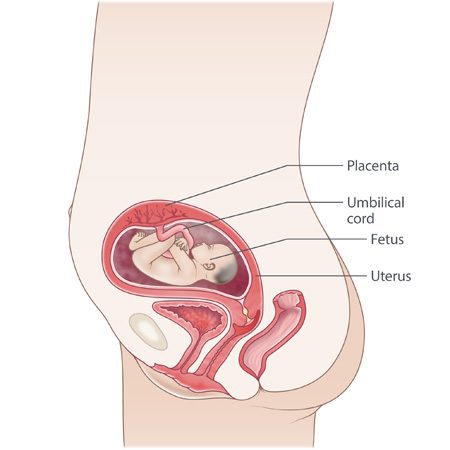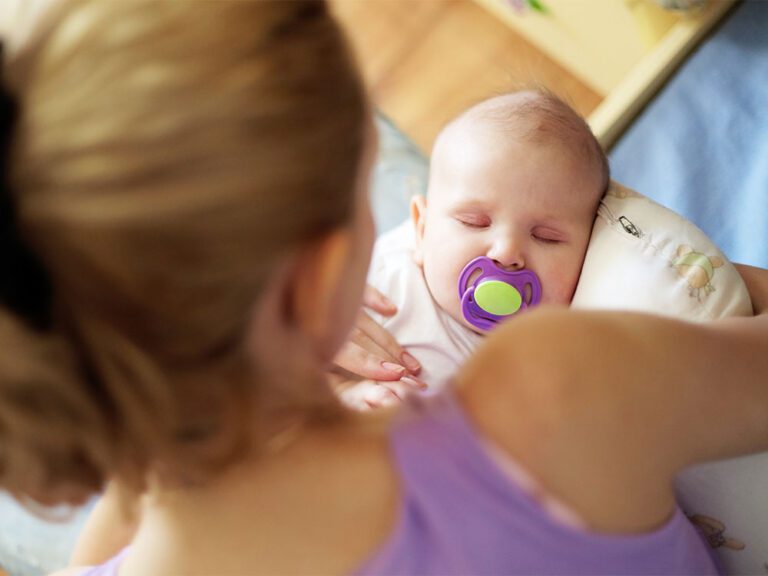How Often Should I Feel Baby Move at 22 Weeks: Expert Advice
At 22 weeks, it is normal to feel your baby move some days and not others. However, as your pregnancy progresses, the kicks should become more consistent, usually by the early third trimester.
It’s important to familiarize yourself with your baby’s typical movements so that you can notice any changes or abnormalities. Remember, every baby is different, so there is no set number of movements you should feel each day.
Understanding Baby’s Movement Patterns
Feeling your baby move is an exciting milestone in your pregnancy journey. It’s a precious reminder of the life growing inside you and can provide a sense of reassurance about your baby’s well-being. However, many expectant mothers wonder how often they should feel their baby move at 22 weeks.
Why Do Babies Move In The Womb?
Babies move in the womb for a variety of reasons. Fetal movement is essential for their growth and development. It helps strengthen their bones and muscles, promotes healthy blood circulation, and aids in the formation of their respiratory and digestive systems. Furthermore, the baby’s movements also help stimulate their nervous system and brain development.
When Do Babies Start Moving In The Womb?
The development of fetal movements varies from one baby to another, but most mothers start feeling their baby’s movements between 18-25 weeks of pregnancy. These initial movements, often described as gentle flutters or bubbles, can be easily missed or mistaken for other sensations. As the baby grows and becomes stronger, their movements will become more pronounced and noticeable.
What Factors Can Affect Baby’s Movements At 22 Weeks?
Several factors can influence your baby’s movements at 22 weeks. The position of the placenta, for example, can act as a cushion and make it more challenging to feel distinct movements. Moreover, the mother’s physical activity, stress levels, and the position she’s in at the time can also affect how prominently the movements are felt. Additionally, certain medications or substances, such as caffeine or nicotine, may impact fetal activity.
What Is Considered Normal Movement For A Baby At 22 Weeks?
There is no set number of movements that you should expect to feel each day at 22 weeks. Every baby is unique, and movement patterns can vary. However, as a general guideline, you should be able to feel your baby move at least a few times throughout the day. Keep in mind that each baby has their own routine, and it’s essential to pay attention to their individual patterns. If you notice a significant decrease in your baby’s movements or any concerns arise, it’s always best to consult with your healthcare provider.
Monitoring Baby’s Movements
Monitoring your baby’s movements is an important aspect of pregnancy. Feeling your baby move is not only an exciting and reassuring experience but can also indicate the well-being of your little one. As you reach 22 weeks, your baby’s movements will become more noticeable and distinct. It is essential to be aware of your baby’s regular movement patterns to ensure their health and development.
How To Track Baby’s Movements At Home?
Tracking your baby’s movements at home is a simple and effective way to monitor their well-being. Here are a few methods you can try:
- Counting kicks: Set aside some quiet time when you can focus on feeling your baby move. Lie down on your side or sit in a comfortable position and pay attention to your baby’s movements. Count each kick, punch, or roll you feel for a specified period, such as one hour. Aim to feel at least 10 movements within this time frame.
- Keeping a kick chart: Use a kick chart to record the number of movements you feel each day. This can provide a visual representation of your baby’s activity level over time and help identify any significant changes or patterns.
- Using a mobile app: There are several mobile apps available that can help you track your baby’s movements. These apps often include features such as kick counters, customizable reminders, and the ability to record and analyze your baby’s activity.
What Are The Recommended Methods To Count Baby Kicks?
Counting baby kicks is a reliable way to monitor your baby’s movement. Here are the recommended methods:
- Choose a time when your baby is typically active: Babies tend to have their active periods throughout the day. Find a time when you feel your baby is most active, such as after a meal or in the evening.
- Find a comfortable position: Lie down on your side or sit in a position that allows you to focus on feeling your baby’s movements without any distractions.
- Paying attention to the quality of movement: Besides counting the number of kicks, pay attention to the strength, duration, and overall pattern of your baby’s movements. Note any changes or abnormalities.
- Relax and be patient: Sometimes, babies may have quieter periods. If you don’t feel the usual number of movements, try drinking something cold or eating a snack to stimulate your baby.
Should I Be Worried If I Feel Fewer Movements?
Feeling fewer movements can naturally cause concern, but it is not always a cause for alarm. Keep in mind that babies have periods of rest and activity, and their movement patterns may vary from day to day. However, if you notice a significant reduction in your baby’s movements or a complete absence of movements, it is important to contact your healthcare provider for further evaluation.
When Should I Contact A Doctor About Decreased Fetal Movement?
If you experience any of the following concerning situations, it is recommended to contact your doctor:
- You notice a sudden and significant decrease in your baby’s movements.
- You don’t feel any movements for several hours, even after trying various techniques to stimulate your baby.
- Your baby’s movements have drastically changed in strength, duration, or pattern.
- You feel that something just doesn’t feel right, and you have concerns about your baby’s well-being.
Remember, it is always better to be cautious and seek professional medical advice if you have any doubts or worries about your baby’s movements. Your healthcare provider is there to ensure the health and safety of both you and your little one.
Disclaimer: This content is for informational purposes only and should not replace professional medical advice. Always consult with your healthcare provider regarding any concerns or questions you may have.Factors That Influence Baby’s Movement
As an expectant mother, you might wonder how often you should feel your baby move at 22 weeks of pregnancy. Several factors can influence your baby’s movements, ranging from maternal factors to external factors like diet, exercise, and emotional state.
How Does A Mother’s Diet Impact Baby’s Movements?
What you eat during pregnancy plays a vital role in your baby’s growth and development. It is essential to maintain a healthy and balanced diet to ensure your baby receives the necessary nutrients. The nutrients you consume are passed on to your baby through the placenta, and they can affect their activity levels.
Does Exercise Affect Baby’s Movements?
Regular exercise during pregnancy offers numerous benefits for both you and your baby. Exercise can improve blood circulation, reduce the risk of gestational diabetes, and boost your overall well-being. It can also have a positive impact on your baby’s movements. When you exercise, your baby may experience gentle rocking motions, leading to increased movement and a sense of calmness.
Can Stress Or Emotional State Affect Baby’s Movements?
Your emotional state and stress levels can influence your baby’s movements. Stress hormones released in your body can affect the uterine environment and potentially impact your baby’s behavior. Some studies suggest that high levels of stress might contribute to decreased fetal movements. Therefore, it’s crucial to manage your stress and prioritize self-care throughout your pregnancy.
In conclusion, various factors can influence your baby’s movements at 22 weeks of pregnancy. Your diet, exercise routine, and emotional state all play a role in determining how often you’ll feel your baby move. By maintaining a healthy lifestyle and managing stress, you can ensure the well-being and optimal movement of your baby.

Credit: www.whattoexpect.com
Tips For Ensuring Healthy Baby Movements
At 22 weeks, it is normal to feel your baby move some days and not others. However, as you enter your third trimester, the kicks should become more consistent. It is important to familiarize yourself with your baby’s typical movement patterns so that you can identify any potential issues.
What Can I Do To Encourage Baby’s Movements?
Encouraging your baby’s movements during pregnancy is important for assessing their overall health and well-being. Here are some tips:
- Stay active: Engage in regular physical activity, such as walking or swimming, to stimulate blood flow and promote baby’s movements.
- Eat a balanced diet: Make sure you’re consuming enough nutrients, vitamins, and minerals to support your baby’s growth and development.
- Stay hydrated: Drinking enough water helps maintain amniotic fluid levels, which can enhance baby’s movements.
- Rest and relax: Find time to rest and relax throughout the day, as stress and fatigue can affect your baby’s movements.
- Talk or sing to your baby: Your voice can be soothing and stimulating for your baby, encouraging them to move.
Should I Establish A Routine For Monitoring Baby’s Movements?
Establishing a routine for monitoring your baby’s movements can provide you with peace of mind and help you notice any changes or abnormalities. Here’s what you can do:
- Choose a time when your baby is usually active, such as after a meal or during the evening.
- Find a comfortable position, either sitting or lying down, where you can focus on feeling your baby’s movements.
- Count the number of kicks or movements you feel within a certain time frame, such as 30 minutes.
- Keep a record of the movements to track any patterns or changes over time.
- If you notice a significant decrease or absence of movements, contact your healthcare provider.
Can External Factors Stimulate Baby’s Movements?
Yes, external factors can stimulate your baby’s movements. Here are some techniques you can try:
| External Factors | Techniques |
|---|---|
| Soothing music | Play music or sing softly to your baby. |
| Gentle touch | Place your hands on your belly and gently rub or tap to encourage movement. |
| Cold drink or snack | Try drinking or eating something cold to stimulate your baby. |
| Change in position | Shift your body position or lie on your side to see if it prompts movement. |
| External sounds | Expose your belly to external sounds, such as your partner’s voice or familiar noises. |
How To Distinguish Baby’s Movements From Other Sensations?
It can be challenging to differentiate your baby’s movements from other sensations in your body. Here are some tips to help you identify your baby’s movements:
- Focus on rhythmic or repetitive patterns, which are likely your baby’s kicks or hiccups.
- Pay attention to the location of the sensation. Baby’s movements are usually felt in the lower abdomen.
- Take note of the timing. Baby’s movements are often more active after meals or when you’re resting.
- Try gently pressing on your belly. If the sensation changes or responds to your touch, it’s likely your baby moving.
Expert Advice On Baby’s Movement Patterns
At 22 weeks, it’s normal to feel your baby move some days and not others. However, it’s important to become familiar with your baby’s typical movement patterns to notice if something is amiss.
What Do Experts Say About Baby’s Movements At 22 Weeks?
At 22 weeks of pregnancy, experts suggest that it is normal to feel your baby move. However, every baby is different and there is no set number of movements you should feel each day. It is important to get to know your baby’s usual movement patterns to better identify any changes or concerns.
How Do Experts Define Normal Movement Patterns At This Stage?
Experts emphasize that there is no one-size-fits-all answer when it comes to normal movement patterns. However, they mention that babies tend to have active and quiet periods, and it’s common to notice an increase in movement as the pregnancy progresses. It is essential to establish your baby’s baseline movement patterns and become familiar with what is normal for your baby.
What Should I Do If I Have Concerns About Baby’s Movements?
If you have concerns about your baby’s movements, experts recommend the following actions:
- Find a quiet and comfortable place to sit or lie down where you can focus on feeling your baby’s movements.
- Drink a cold glass of water or have a small snack to stimulate the baby’s movements.
- Do a kick count: Concentrate on counting the baby’s movements for a set period of time, such as one hour. Ideally, you should feel at least ten movements within this time frame.
- If you don’t feel ten movements in the set time period or notice a significant decrease in your baby’s activity, contact your healthcare provider.
When Is It Necessary To Seek Medical Advice?
Seeking medical advice is crucial if you experience any of the following:
- Absence of fetal movement for a prolonged period of time (more than 24 hours).
- Drastic changes in your baby’s movement patterns, such as a sudden decrease in movement or a significant increase in activity.
- Unusual sensations or pain accompanying the baby’s movements.
Remember, it is always better to err on the side of caution and consult with your healthcare provider if you have any concerns about your baby’s movements.
Frequently Asked Questions For How Often Should I Feel Baby Move At 22 Weeks
Is It Normal Not To Feel Baby Move Everyday At 22 Weeks?
It is normal to not feel your baby move every day at 22 weeks. Movement will become consistent later in pregnancy, usually in the third trimester. However, it is important to become familiar with your baby’s usual movements to notice any changes.
If you notice a decrease in movement or a change in the usual pattern, contact your doctor.
How Many Times A Day Should Baby Kick At 22 Weeks?
At 22 weeks, there is no set number of times a baby should kick each day. Every baby is different, so it’s important to get to know your baby’s usual movements from day to day. If you notice a decrease in movement or a change in the usual pattern, contact your doctor.
Is It Normal For The Baby Not To Move For A Day?
It is normal for the baby not to move for a day. However, it is important to become familiar with your baby’s typical movements and contact a doctor if you notice a decrease in movement or a change in the usual pattern.
When Should I Be Worried About Decreased Fetal Movement?
If you notice a decrease in fetal movement, a change in the usual movement pattern, or if the fetus is not moving, contact a doctor as it may indicate a serious cause. It’s important to become familiar with your baby’s typical movements, especially in the third trimester.
Conclusion
Feeling your baby move at 22 weeks is an exciting milestone in your pregnancy journey. While there is no set number of movements you should feel each day, it’s important to become familiar with your baby’s usual movements. As the pregnancy progresses, the kicks will become more consistent, usually in the third trimester.
However, if you notice a decrease in movement or a change in the usual pattern, it’s always a good idea to contact your doctor. Trust your instincts and stay connected with your baby’s well-being.







